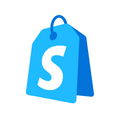Or go to our Shopify Theme Detector directly
Shopify POS Compatibility with Different E-Commerce Platforms
Last modified: April 25, 2024

The compatibility of Shopify Point of Sale (POS) with various e-commerce platforms offers specific insights to guide your decision-making process. As you read on, you’ll gain detailed information on how Shopify POS can seamlessly integrate with your current e-commerce setup, empowering you to make informed decisions for your retail and online operations.
| # | Name | Image | |
|---|---|---|---|
| 1 |

|
Shopify Point of Sale
|
|
| 2 |

|
ConnectPOS
|
|
| 3 |

|
Erply POS Integration
|
|
| 4 |

|
Selly United
|
|
| 5 |

|
POS Membership
|
|
| 6 |

|
POS Local Delivery
|
|
| 7 |

|
Sesami: Appointment Booking
|
|
| 8 |

|
Unitpricer
|
|
| 9 |

|
EasyTeam POS Staff Management
|
|
| 10 |

|
Joy: Rewards & Loyalty Program
|
|
| 11 |

|
Loloyal: Loyalty and Referral
|
|
| 12 |

|
Bundler ‑ Product Bundles
|
|
| 13 |

|
Cost+: Easy POS Discounts
|
|
| 14 |

|
Smile: Loyalty & Rewards
|
|
| 15 |

|
Pickup Delivery Date —Pickeasy
|
|
|
Show More
|
|||
Compatibility Overview
Shopify POS offers streamlined integration with a variety of e-commerce platforms, such as Magento, BigCommerce, WooCommerce, and Wix. This compatibility allows businesses to connect their online sales channels efficiently, enhancing data management and operational efficiency. Through this integration, inventory management becomes more effective, and sales data can be tracked in real time.
Integrating Shopify POS with different e-commerce platforms provides businesses with the capability to manage operations more effectively. This connection ensures that inventory and sales data are synchronized across various systems, leading to better performance and customer satisfaction. The flexibility offered by Shopify POS integration meets diverse business needs and requirements, allowing for tailored operational adjustments.
The ability to integrate Shopify POS with multiple e-commerce platforms significantly boosts operational efficiency. Businesses benefit from a unified system that consolidates various aspects of online sales and management. This not only simplifies operations but also enhances the effectiveness of using the POS system for managing online sales. The result is a more streamlined process that ultimately benefits both the business and its customers.
Benefits of Integrating Shopify POS with E-commerce Platforms
Integrating Shopify POS with other e-commerce platforms simplifies sales operations and improves inventory management, leading to enhanced business efficiency. This integration creates a unified system for both online and offline retail, centralizing sales data and inventory management. It ensures a consistent shopping experience for customers across all channels, which boosts customer satisfaction and loyalty.
Shopify POS’s capability to monitor sales data and customer interactions facilitates personalized services and targeted marketing. This approach allows businesses to manage inventory more effectively, avoiding stock shortages and ensuring products are restocked promptly. Such efficient operations not only improve service but also increase sales.
In the competitive retail sector, meeting the omnichannel expectations of customers is crucial. The comprehensive solution provided by Shopify POS integration meets these needs, aligning with the changing retail environment. Utilizing the advantages of POS integration enables businesses to stay competitive and cultivate growth.
Supported E-Commerce Platforms
Shopify POS offers integration with leading e-commerce platforms including WooCommerce, BigCommerce, and Magento. These platforms facilitate efficient management of orders, both online and offline. The integration ensures seamless data flow between the POS system and the e-commerce store, making operations more efficient. Businesses can thus take advantage of the comprehensive order fulfillment options provided, improving customer satisfaction.
Moreover, Shopify POS works well with other well-known e-commerce platforms like Squarespace, Wix, and Volusion. This broadens the range of options for businesses aiming to enhance their POS software. Platforms such as 3dcart, PrestaShop, and OpenCart also integrate without issues with Shopify POS, offering a well-rounded solution for aligning POS and e-commerce activities.
This extensive compatibility list highlights Shopify POS’s flexibility and capability to meet various e-commerce needs. By supporting a wide array of platforms, Shopify POS positions itself as a versatile tool for businesses aiming to synchronize their online and physical sales channels effectively.
Streamlining Shopify POS and E-commerce Platform Integration
By utilizing real-time data synchronization, you maintain accurate inventory levels and sales performance tracking across both online and physical storefronts. This feature is essential for keeping up-to-date with your business operations and ensuring customer satisfaction through accurate stock availability.
The Shopify POS integration offers customization options that enable you to adjust the functionality according to your business requirements. Tailoring the integration helps in aligning with your specific operational needs, further enhancing the efficiency of your sales processes.
Integrating Shopify POS with different e-commerce platforms not only streamlines your operations but also broadens your market presence by offering a consistent shopping experience. This strategic move can lead to growth in both online and in-store sales, ultimately boosting customer satisfaction. By leveraging the advantages provided by the Shopify POS integration, you can improve your business’s operational efficiency and expand your customer reach.
To enhance your POS setup and streamline integration and operations, explore the best Shopify apps available for additional tools and resources.
Conclusion: Shopify POS Compatibility with Different E-Commerce Platforms
Shopify POS’s compatibility with various e-commerce platforms offers a significant advantage for businesses aiming to unify their online and physical stores. This integration ensures real-time updates and simplifies operations, providing a seamless shopping experience for customers. Embracing Shopify POS and compatible e-commerce platforms can strategically enhance sales strategies and operational efficiency across all sales channels. It’s about creating smoother processes for both businesses and customers, fostering mutual success with every transaction.
-
Is it possible to connect Shopify POS with external accounting software?
Indeed, Shopify POS can be linked with leading accounting software solutions, streamlining financial operations. This connection ensures that sales data is directly transferred to the accounting platform.
-
Can I connect external monitors or displays to Shopify POS?
Yes, connecting external monitors or customer-facing displays to Shopify POS can be done to enhance the checkout experience. These displays can show transaction details, promotions, and other important information.
-
What role does data analytics play in Shopify POS and e-commerce integration?
It enables businesses to collect and analyze data from both online and offline sales, offering insights into customer behavior, product performance, and sales trends.

 PageFly Landing Page Builder
PageFly Landing Page Builder  Shopify
Shopify  SEMrush
SEMrush  Website Maintenance
Website Maintenance  UpPromote
UpPromote